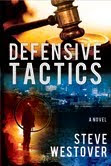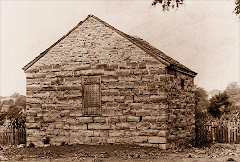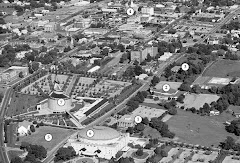 Intro:
Intro:I remember attending a Religion class at BYU in the Spring of 1998. My professor was involved in developing and writing the curriculum for the Sunday School, priesthood & Relief Society and he had just returned from a meeting with the Quorum of the 12 Apostles. At this meeting
President Hinckley announced a goal to have 100 Temples in operation by the year 2000. I remember being amazed and a little skeptical of this goal.
*By the end of 2000, 102 temples were in operation. Sunday, Aug 24, President Monson dedicated the Twin Falls Idaho Temple, making it the 128th operational temple in the world and at General Conference on October 4, 2008, he announced the locations for 5 new temples, including one in Kansas City Missouri. This brings the total number of temples in operation, planned, or under construction to 140. In 1995 when
President Hinckley became the President of the Church of Jesus Christ of Latter Day Saints, there were 47 temples in operation. In the last 13 years 81 new temples have been dedicated, an average of over 6 per year. Contrast this with the 47 temples that were dedicated in the first 165 years of the Church’s existence.
These Temples are being built to speed the work of redeeming our dead. At the ground breaking of the St Louis Temple,
President Monson said, “We build temples so that we might redeem our dead, and so that we might have an opportunity to perform those ordinances which we will take with us through eternity.”
This is absolutely amazing. We are witnessing a remarkable work. Everything about the work for redeeming the dead testifies of the divinity of Jesus Christ. It testifies of His resurrection, the infinite reach of His atonement, that He is the sole source of salvation, that He has established the conditions for salvation and that He will come again.
We are living at a time when we are able to witness and participate in the fulfillment of prophesy. We are living in a time with great opportunity, a time that every generation has looked forward to with great anticipation. It is a time when the fullness of the gospel of Jesus Christ and all keys from the various dispensations of time are on the earth, and there is work for us to do.
We learn from the vision granted to
Pres. Joseph F. Smith as recorded in D&C 138, that those who have died without knowledge of the Savior are being taught the gospel of Jesus Christ in the spirit world. As spirits they are able to exercise their agency in expressing faith in Christ and accepting His gospel. But as spirits, they are unable to physically receive the ordinances of the gospel, including baptism for the remission of sins. President
Gordon B Hinckley has said “the dead who repent will be redeemed, through obedience to the ordinances of the house of God,” but only if they accept those ordinances.
We know it is the work and Glory of our Father in Heaven to bring to pass the immortality and eternal life of man. It is our great blessing and opportunity to be about the same work by endeavoring with all our heart to assist our brothers and sisters, both living and dead, to receive the fullness of the gospel and receive eternal life.
To better understand our role in this vicarious work of redeeming our dead, I would like to use
D&C section 2 as the outline for my talk.
D&C 2- An extract from the words of the angel Moroni to Joseph Smith the Prophet, while in the house of the Prophet’s father at Manchester, New York, on the evening of September 21, 1823. Chronologically, it is the first section received by the Prophet Joseph Smith. Compare with Malachi 4:5-6
Elder Ray Christianson, in a Conference report in April 1960 said, “‘The beginning and the end of the gospel is written in section two of the Doctrine and Covenants. It is the keystone of the wonderful gospel arch; and if that center stone should weaken and fall out, the whole gospel structure would topple down in unorganized doctrinal blocks.’”
1 Behold, I will reveal unto you the Priesthood, by the hand of
Elijah the prophet, before the coming of the great and
dreadful day of the Lord.
2 And
he shall plant in the hearts of the children the
promises made to the fathers, and the hearts of the children shall turn to their fathers.
3 If it were not so, the whole
earth would be utterly wasted at his coming.
Vs 1: Behold, I will reveal unto you the Priesthood, by the hand of
Elijah the prophet, before the coming of the great and
dreadful day of the Lord.
Prior to the 2nd coming of the Lord Elijah is prophesied to come and restore the priesthood keys of the sealing ordinances.
President
Joseph Fielding Smith noted an interesting aspect of Elijah’s return to the earth on 3 April 1836.
“Edersheim in his work, The Temple, says: ‘To this day, in every Jewish home, at a certain part of the Paschal service the door is opened to admit Elijah the prophet as forerunner of the Messiah…’
“It was, I am informed, on the third day of April, 1836, that the Jews, in their homes at the Paschal feast, opened their doors for Elijah to enter. On that very day Elijah did enter—not in the home of the Jews to partake of the Passover with them—but he appeared in the house of the Lord, erected to his name and received by the Lord in Kirtland, and there bestowed his keys to bring to pass the very things for which these Jews, assembled in their homes, were seeking.” (Doctrines of Salvation, 2:100–101.)
By the time Elijah appeared in the Kirtland Temple on 3 April 1836, Joseph Smith and Oliver Cowdery had already received the Melchizedek Priesthood under the hands of Peter, James, and John (May 1829); however, they received no priesthood office until nearly a year later when the Church was organized and they were ordained as the first 2 Elders of the Church on April 6, 1830. At the time they received the M. Priesthood they also lacked essential keys to that priesthood. President Joseph Fielding Smith explained the priesthood keys Elijah came to restore on April 3, 1836:
“The keys that Elijah held, (and conferred upon Joseph Smith) were the keys of the everlasting priesthood, the keys of the sealing power, which the Lord gave unto him. That included a ministry of sealing for the living as well as the dead and it is not confined to the living and it is not confined to the dead, but includes them both…
“Elijah’s mission was the sealing power. He held the keys by which the parents could be sealed together and children sealed to parents. He bestowed these keys upon the Prophet Joseph Smith. And [this] applies to the dead as well as the living since the coming of the Lord Jesus Christ.
Some wonder why Elijah was the one who had to restore the keys to the earth. Joseph Fielding Smith answers this question by stating, “Without question Peter, James, and John could have bestowed this authority, if they had been commissioned; so could Adam, for he held the keys of all the dispensations.” But Joseph Smith adds “‘Elijah was the last prophet that held the keys of the priesthood, and who will, before the last dispensation, restore the authority and deliver the keys of the priesthood, in order that all the ordinances may be attended to in righteousness.”
It was prophesied that Elijah would return before the Lord’s 2nd coming to restore priesthood keys and sealing power. This prophesy has been fulfilled and the power to accomplish this work preparatory to the 2nd coming of the Savior, is on the earth today.
Vs 2: And
he shall plant in the hearts of the children the
promises made to the fathers, and the hearts of the children shall turn to their fathers.
Promises to Fathers- hearts of children will turn to fathers (Like Malachi)
Joseph Fielding Smith taught, “What was the promise made to the fathers that was to be fulfilled in the latter days by the turning of the hearts of the children to their fathers? It was the promise of the Lord made through Enoch, Isaiah, and the prophets, to the nations of the earth, that the time should come when the dead should be redeemed.”
Jeffrey R Holland has further taught “God made those promises to the ancient patriarchs-Adam, Noah, Abraham, Isaac, Jacob, and so forth—and we undoubtedly made them to our own lineal fathers and mothers, those who came to earth before the gospel was restored but whom we promised to provide its saving ordinances”
In 1841
Wilford Woodruff returned to Nauvoo after serving a mission to England. For the first time he heard the prophet Joseph Smith preach the doctrine of redeeming the dead. He said, “It was like a shaft of light from the throne of God to our hearts. It opened a field wide as eternity to our minds. I felt he was consistent with both love, mercy, justice and judgment and I felt to love the Lord more than ever before in my life…. I felt to say hallelujah when the revelation came forth revealing to us baptism for the dead. I felt that we had a right to rejoice in the blessings of Heaven”.
He continued in saying “The first thing that entered my mind was that I had a mother in the spirit world. She died when I was 14 months old. I never knew my mother. I thought to myself, [I] have the power to go forth and seal my mother to my father. She will have a part in the first resurrection; and this alone would pay me for all the labors of my life”.
It is inspiring to hear Wilford Woodruffs enthusiasm about this doctrine. He was overjoyed that his mother could receive the same eternal blessings he was receiving. Do we feel that same joy and enthusiasm?
Wilford Woodruff’s heart was turned to the promises of his fathers as was prophesied and his ministry revolved around redeeming the dead. As President of the St. George Temple he was actively engaged in performing vicarious work for his own ancestors as well as work for many great founding fathers of our nation. As President of the church he dedicated the Salt Lake City Temple and at the April 1894 Conference announced this revelation, “we want the Latter Day Saints from this time to trace their genealogies as far as they can, and to be sealed to their fathers and mothers. Have children sealed to their parents and run this chain through as far as you can get it… This is the will of the Lord to his people.”
Following this revelation, in November 1894 the Genealogical Society of Utah was organized to teach members how to research and organize records to trace their family histories. Ever since the Church has continued to be a world leader in teaching, gathering, maintaining and making available resources for individuals to research their ancestors, in fulfilling the promise of turning the hearts of the children to their fathers.
“God is no respecter of persons; he will not give privileges to one generation and withhold them from another”. Wilford Woodruff
The hearts of the children are being turned to their fathers as promised, and the work of redeeming the dead is moving forward.
Vs 3: 3 If it were not so, the whole
earth would be utterly wasted at his coming.
We learn the Earth would be utterly wasted without this work- This is why Temple work is essential
The 3rd verse of D&C Section 2 is a warning. What does it mean?
Why would the whole earth be utterly wasted at the Lord’s coming if the sealing power was not restored and the hearts of the children were not turned to their fathers?
One of the primary purposes of life on earth is to establish eternal family relationships. Without the sealing power, this would be impossible.
Elder Holland teaches us that, “without the sealing power, no family ties would exist in the eternities, and indeed the family of man would have been left in eternity with neither root [ancestors] or branch [descendants]. Inasmuch as a sealed, united, celestially saved family of God is the ultimate purpose of mortality, any failure here would have been a curse indeed, rendering the entire plan of salvation ‘utterly wasted’”.
Elder
Russell M. Nelson said, “Some among us still have neither perceived the Spirit of Elijah nor its power. Yet, we are bound by this warning.”
He continues, “These are principles in relation to the dead and the living that cannot be lightly passed over… For their salvation is necessary and essential to our salvation… they without us cannot be made perfect- neither can we without our dead be made perfect.”
Conclusion:
No people in history have ever had the opportunity to do so much for so many people as we do today. We are blessed with the opportunity to receive ordinances vicariously for our deceased ancestors, that they may receive the same eternal blessings we do.
Elder Nelson said “ We know that Elijah did return- at least twice- after Malachi’s promise. At Christ’s transfiguration, Elijah appeared on the mount to Peter, James, and John. At the Kirtland Temple, April 3, 1836, Elijah appeared to the prophet and Oliver Cowdery and said “The keys of this dispensation are committed into your hands”.
“This is a work that rests upon the Latter-day Saints. Do what you can in this respect, so that when you pass to the other side of the veil your fathers, mothers, relatives and friends will bless you for what you have done”.
Wilford WoodruffWhen we meet our ancestors in the spirit world, it will be a time of either joy or regret, depending on the work we have done for them here.
President
Howard W. Hunter said “The uniting and redemption of the family of God was the divine plan before the foundations of the earth were laid. This exalting service for others unseen is one of the most noble acts of human kindness.”
He continued, “Let us be a temple-attending and a temple-loving people. Let us hasten to the temple…not only for our kindred dead, but let us also go for the personal blessings of temple worship.”
Elder
D Todd Christopherson said, “Our efforts on behalf of our dead bear eloquent witness that Jesus Christ is the divine Redeemer of all mankind. His grace and promises reach even those who in life do not find it.”
He continues, “Our anxiety to redeem the dead, and the time and resources we put behind that commitment, are above all, an expression of our witness concerning Jesus Christ- [and His infinite atonement].
We live at a time where we are a part of the fulfillment of prophesy. Elijah has returned and the Sealing Keys of the priesthood are on the earth. Revelation directing the work of redeeming the dead has been received, temples are being built & dedicated at a rapid pace. Advances in technology allow for great strides in Family History research.
79 temples are now online with the new.family search program for preparing family names for temple ordinances.
What specifically should we be doing?
1- Gain a testimony of redeeming the dead and the sealing keys of the priesthood
2- Be worthy and receive blessings of the Temple for ourselves
3- Receive training in Family History Research and new.familysearch program
4- Research, verify and clear names for Temple ordinances
5- Attend the temple regularly and receive ordinances for the benefit of our deceased ancestors
6- Organize and assist others in attending the temple regularly in any way possible- perhaps by sharing rides, babysitting or other resources
Only 15 Temples were operational when I was born in 1974, which means 113 Temples have been dedicated in my lifetime of 34 years. This work is not meant for a past or future generation, it is meant for each of us living now, whether we are a youth, middle aged, or elderly.
The stage has been set and the work is in front of us to do. We have great family history consultants and others in the Ward who are very skilled in this work. If you need help, please ask. Others can help teach us how to do the work, but we must first have the desire and dedication to try.
Remember, as
Elder Christopherson said, “Our anxiety to redeem the dead, and the time and resources we put behind that commitment, are above all, an expression of our witness concerning Jesus Christ-
D&C 128:24 “Let us, therefore, as a church and a people, and as Latter-day Saints, offer unto the Lord an offering in righteousness; and let us present in his holy temple, when it is finished, a book containing the
records of our dead, which shall be worthy of all acceptation.
References:
Malachi 4:5-6
D&C 2
D&C 138
D&C 127-128
1. The Redemption of the Dead and the Testimony of Jesus- Christopherson, Nov 2000
2. D&C/Church History Teachers Manual- The Hearts of the Children Shall Turn to their
Fathers- Lesson 39
3. Teachings of the Presidents of the Church- Wilford Woodruff Chapter 18: Temple
Work: Becoming Saviors on Mount Zion
4. The Spirit of Elijah – Nelson, Nov 19945. D&C Institute manual- D&C Section 2 The Promises Made to the Fathers
 We all know that on Christmas Day we celebrate the birth of Jesus of Nazareth, who is considered to be the ultimate Savior and Redeemer by Christian believers. But there are a myriad of myths and traditions associated with Christmas, many of which trace their origins beyond Christianity. For example there is ample speculation secularly as well as among various Christian denominations, that Christ was not born on December 25th. Instead of a more likely spring birthday, December 25th was likely chosen for celebration as a melding between the expanding old world Christian faith, paganism, Winter Solstice and popular Roman festivals of the time.
We all know that on Christmas Day we celebrate the birth of Jesus of Nazareth, who is considered to be the ultimate Savior and Redeemer by Christian believers. But there are a myriad of myths and traditions associated with Christmas, many of which trace their origins beyond Christianity. For example there is ample speculation secularly as well as among various Christian denominations, that Christ was not born on December 25th. Instead of a more likely spring birthday, December 25th was likely chosen for celebration as a melding between the expanding old world Christian faith, paganism, Winter Solstice and popular Roman festivals of the time.




































